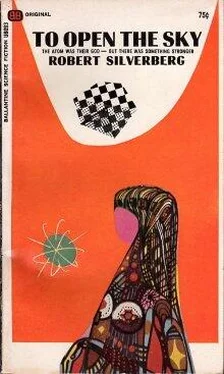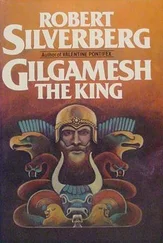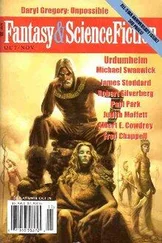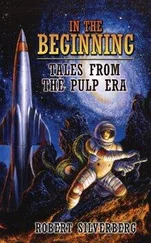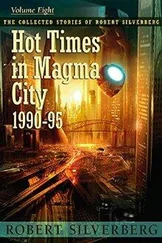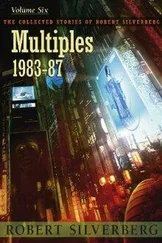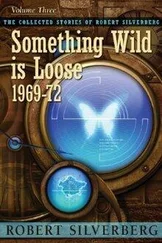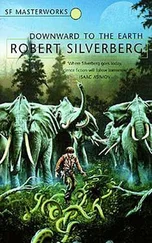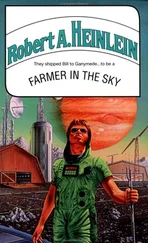Robert Silverberg - To Open the Sky
Здесь есть возможность читать онлайн «Robert Silverberg - To Open the Sky» весь текст электронной книги совершенно бесплатно (целиком полную версию без сокращений). В некоторых случаях можно слушать аудио, скачать через торрент в формате fb2 и присутствует краткое содержание. Год выпуска: 1967, Издательство: Ballantine Books, Жанр: Фантастика и фэнтези, на английском языке. Описание произведения, (предисловие) а так же отзывы посетителей доступны на портале библиотеки ЛибКат.
- Название:To Open the Sky
- Автор:
- Издательство:Ballantine Books
- Жанр:
- Год:1967
- ISBN:нет данных
- Рейтинг книги:5 / 5. Голосов: 1
-
Избранное:Добавить в избранное
- Отзывы:
-
Ваша оценка:
- 100
- 1
- 2
- 3
- 4
- 5
To Open the Sky: краткое содержание, описание и аннотация
Предлагаем к чтению аннотацию, описание, краткое содержание или предисловие (зависит от того, что написал сам автор книги «To Open the Sky»). Если вы не нашли необходимую информацию о книге — напишите в комментариях, мы постараемся отыскать её.
To Open the Sky — читать онлайн бесплатно полную книгу (весь текст) целиком
Ниже представлен текст книги, разбитый по страницам. Система сохранения места последней прочитанной страницы, позволяет с удобством читать онлайн бесплатно книгу «To Open the Sky», без необходимости каждый раз заново искать на чём Вы остановились. Поставьте закладку, и сможете в любой момент перейти на страницу, на которой закончили чтение.
Интервал:
Закладка:
That was the slow way of evolving a new kind of man. Take a bunch of people with unusual talents, throw them into a closed environment, let them pick their own mates and multiply the genetic pool—well, that was one way. Another was to work di-rectly on the germ plasm. They were doing that here, too, in a variety of ways. Tectogenetic microsurgery, polynuclear molding, DNA manipulation—they were trying everything. Cut and carve the genes, push the chromosomes around, get the tiny replicators to produce something slightly different from what had gone before—that was the aim.
How well was it working? That was hard to tell, so far. It would take five or six generations to evaluate the results. Mondschein, as a mere acolyte, did not have the equipment to judge for himself. Neither did most of those he had contact with—technicians, mainly. But they could speculate, and they did, far into the night.
What interested Mondschein, far more than the experiments in esper genetics, was the work on life span prolongation. Here, too, the Vorsters were building on an established body of technique. The organ banks provided replacements for most forms of bodily tissue; lungs, eyes, hearts, intestines, pancreases, kidneys, all could be implanted now, using the irradiation techniques to destroy the graft-rejecting immune reaction. But such piecemeal rejuvenation was not true immortality. The Vorsters Sought a way to make the cells of the body regenerate lost tissue, so that the impulse toward continued life came from within, not through external grafts.
Mondschein did his bit. Like most of the bottom-grade people at the center, he was required to surrender a morsel of flesh every few days as experimental material. The biopsies were a nuisance, but they were part of the routine. He was a regular contributor to the sperm bank, too. As a non-esper, he was a good control subject for the work going on. How did you find the gene for teleportation? For telepathy? For any of the paranormal phenomena that were lumped under the blanket term of “esp”?
Mondschein cooperated. He played his humble part in the great campaign, aware that he was no more than an infantryman in the struggle. He went from laboratory to laboratory, submitting to tests and needles, and when he was not taking part in such enterprises, he carried out his own specialty, which was to serve as a maintenance man on the nuclear power plant that ran the entire center.
It was quite a different life from that in the Nyack chapel. No members of the public came here—no worshipers—and it was easy to forget that he was part of a religious movement. They held services here regularly, of course, but there was a professionalism about the worship that made it all seem rather perfunctory. Without some laymen in the house, it was hard to remain really dedicated to the cult of the Blue Fire.
In this more rarefied climate, Mondschein felt some of his seething impatience ebb away. Now he no longer could dream of going to Santa Fe, for he was there, on the spot, part of the experiments. Now he could only wait, and tick off the moments of progress, and hope.
He made new friends. He developed new interests. He went with Capodimonte to see the ancient ruins, and he went hunting in the Picuris Range with a lanky acolyte named Weber, and he joined the choral society and sang a lusty tenor.
He was happy here.
He did not know, of course, that he was here as a spy for heretics. All that had been deftly erased from his memory. In its place had been left a triggering mechanism, which went off one night in early September, and abruptly Mondschein felt a strange compulsion take hold.
It was the night of the Meson Sacrament, a feast that heralded the autumn solstice. Mondschein, wearing his blue robe, stood between Capodimonte and Weber in the chapel, watching the reactor glare on the altar, listening to the voice intoning, “The world turns and the configurations change. There is a quantum jump in the lives of men, when doubts and fears are left behind and certainty is born. There is a flash as of light—a surge of inward radiation, a sense of Oneness with—”
Mondschein stiffened. They were Vorst’s words, words he had heard an infinity of times, so familiar to him that they had cut grooves in his brain. Yet now he seemed to be hearing them for the first time. When the words “a sense of Oneness” were pronounced, Mondschein gasped, gripped the seat in front of him, nearly doubled up in agony. He felt a sensation as of a blazing knife twisting in ins bowels.
“Are you all right?” Capodimonte whispered.
Mondschein nodded. “Just—cramps—”
He forced himself to straighten up. But he was not all right, he knew. Something was wrong, and he did not know what. He was possessed. He was no longer his own master. Willy-nilly, he would obey an inner command whose nature he did not at the moment know, but which he sensed would be revealed to him at the proper time, and which he would not resist.
seven
Seven hours later, at the darkest hour of night, Mondschein knew that the time had come.
He woke, sweat-soaked, and slipped into his robe. The dormitory was silent. He left his room, glided quietly down the hail, entered the dropshaft. Moments later he emerged in the plaza fronting the dormitory buildings.
The night was cold. Here on the plateau the day’s warmth fled swiftly once darkness descended. Shivering a little, Mondschein made his way through the streets of the center. No guards were on duty; there was no one to fear in this carefully selected, rigorously scanned colony of the faithful. Somewhere a watchful esper might be awake, seeking to detect hostile thoughts, but Mondschein was emanating nothing that might seem hostile. He did not know where he was going, nor what he was about to do. The forces that drove him welled from deep within his brain, beyond the fumbling reach of any esper. They guided his motor responses, not his cerebral centers.
He came to one of the information-retrieval centers, a stubby brick building with a blank windowless facade. Pressing his hand against the doorscanner, Mondschein waited to be identified; in a moment his pattern was checked against the master list of personnel, and he was admitted.
There flowered in his brain the knowledge of what he had come to find: a holographic camera.
They kept such equipment on the second level. Mondschein went to the storeroom, opened a cabinet, removed a compact object six inches square. Unhurriedly, he left the building, sliding the camera into his sleeve.
Crossing another plaza, Mondschein approached Lab XXIa, the longevity building. He had been there during the day, to give a biopsy. Now he moved briskly through the irising doorway, down a level into the basement, entered the small room just to his left. A rack of photomicrographs lay on a workbench along the rear wall. Mondschein touched a knuckle to the scanner-activator, and a conveyor belt dumped the photomicrographs into the hopper of a projector. They began to appear in the objective of the viewer.
Mondschein aimed his camera and made a hologram of each photomicrograph as it appeared. It was quick work. The camera’s laser beam flicked out, bouncing off the subjects, rebounding and intersecting a second beam at 45 degrees. The holograms would be unrecognizable without the proper equipment for viewing; only a second laser beam, set at the same angle as the one with which the holograms had been taken, could transform the unrecognizable patterns of intersecting circles on the plates into images. Those images, Mondachein knew, would be three-di-mensional and of extraordinarily fine resolution. But he did not stop to ponder on the use to which they might be put.
He moved through the laboratory, photographing everything that might be of some value. The camera could take hundreds of shots without recharging. Mondschein thumbed it again and again. Within two hours he had made a three-dimensional record of virtually the entire laboratory.
Читать дальшеИнтервал:
Закладка:
Похожие книги на «To Open the Sky»
Представляем Вашему вниманию похожие книги на «To Open the Sky» списком для выбора. Мы отобрали схожую по названию и смыслу литературу в надежде предоставить читателям больше вариантов отыскать новые, интересные, ещё непрочитанные произведения.
Обсуждение, отзывы о книге «To Open the Sky» и просто собственные мнения читателей. Оставьте ваши комментарии, напишите, что Вы думаете о произведении, его смысле или главных героях. Укажите что конкретно понравилось, а что нет, и почему Вы так считаете.
